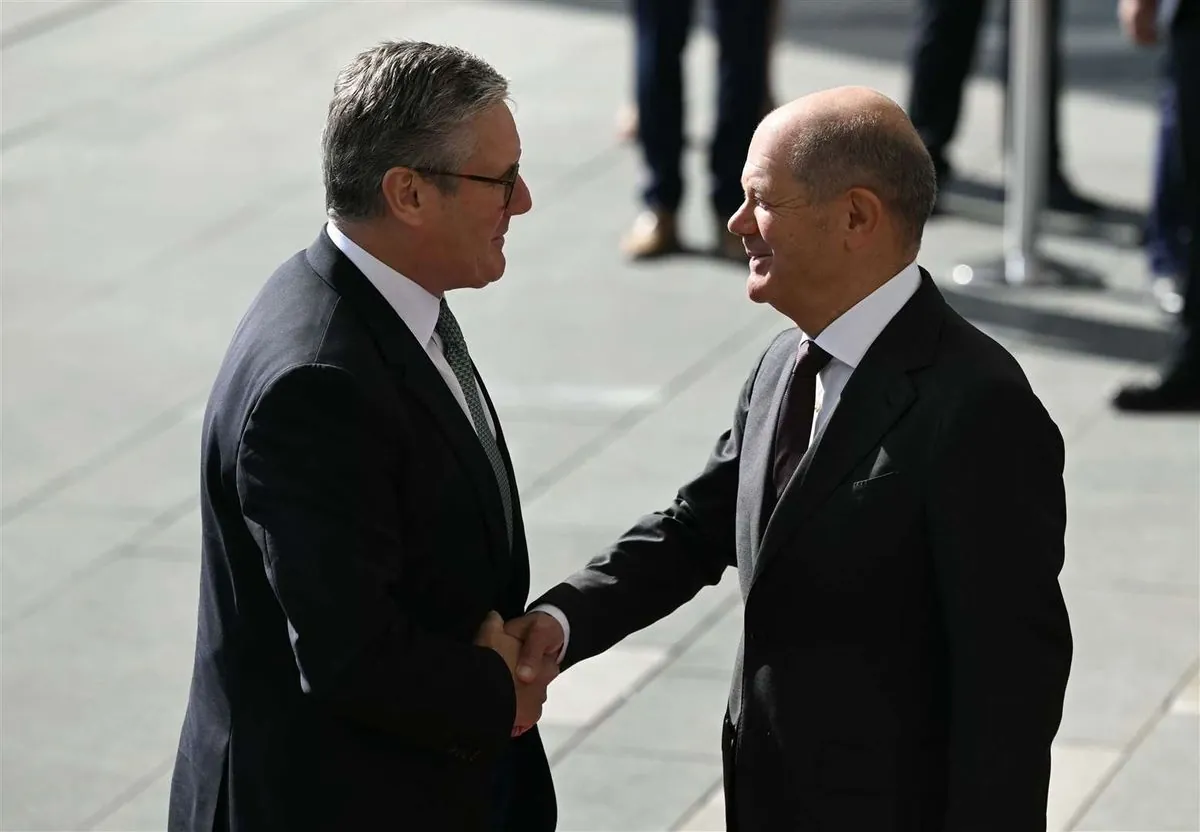Starmer's Brexit Reset: Seeking German Support for EU Deal Renegotiation
UK Labour leader Keir Starmer aims to improve Brexit terms with EU support, focusing on Germany's backing. Challenges include EU satisfaction with current deal and shifting political landscapes.

Keir Starmer, leader of the UK's Labour Party, is embarking on a strategic mission to reshape Britain's post-Brexit relationship with the European Union. Central to this plan is securing support from Olaf Scholz, the German Chancellor, as part of "Operation Reset" to lay the groundwork for future Brexit negotiations.
Starmer's recent visit to Berlin underscores the importance of Germany in his strategy. As the EU's largest economy and home to European Commission President Ursula von der Leyen, Germany's influence could be pivotal in swaying EU opinion. However, Starmer faces significant challenges in this endeavor.
The European Commission, which leads EU trade talks, appears content with the current Brexit deal, viewing it as favorable to the bloc. Starmer must convince influential EU leaders to advocate for Britain's case, persuading both the Commission and the 27 member states to revisit Brexit negotiations.

Improved UK-EU relations, bolstered by the Windsor Agreement on Northern Ireland and a united front against Russian aggression in Ukraine, provide a foundation for Starmer's efforts. However, the EU's focus on the ongoing conflict and economic challenges limits its capacity to prioritize Brexit revisions.
"We must turn a corner on Brexit"
While Labour insists there are no plans to rejoin the EU or its single market, Starmer aims to deepen ties and potentially renegotiate aspects of the "botched" Brexit trade agreement. This approach requires a delicate balance to avoid accusations of circumventing Brussels by directly lobbying European capitals.
The timeline for these efforts is crucial. With German federal elections scheduled for September 2025 and the UK-EU trade deal review set for May 2026, Starmer has a narrow window to leverage Scholz's support. The chancellor's own political challenges, including pressure over migration and budget issues, add complexity to the situation.
Starmer's strategy involves striking bilateral deals with Berlin on defense and trade, aiming to signal to other EU members Britain's commitment to improved relations. However, these agreements alone may not suffice to sway Brussels, which is likely to maintain a tough negotiating stance.
The European Commission's initial response to Labour's proposals has been lukewarm, suggesting only minor tweaks to the existing deal. Starmer's refusal to consider "free movement lite" or rejoining the Erasmus program, despite EU offers, highlights the complexities of the negotiations ahead.
As history has shown, Brexit negotiations often involve both sides presenting maximalist positions before compromising. The EU's 450-million-strong single market continues to provide significant leverage, and the Commission remains protective of its territory.
Starmer now faces the challenge of building political momentum and goodwill with EU capitals while navigating the intricacies of Brussels politics. The success of his "Operation Reset" will depend on his ability to balance these competing interests and convince EU leaders of the mutual benefits of a revised Brexit agreement.


































